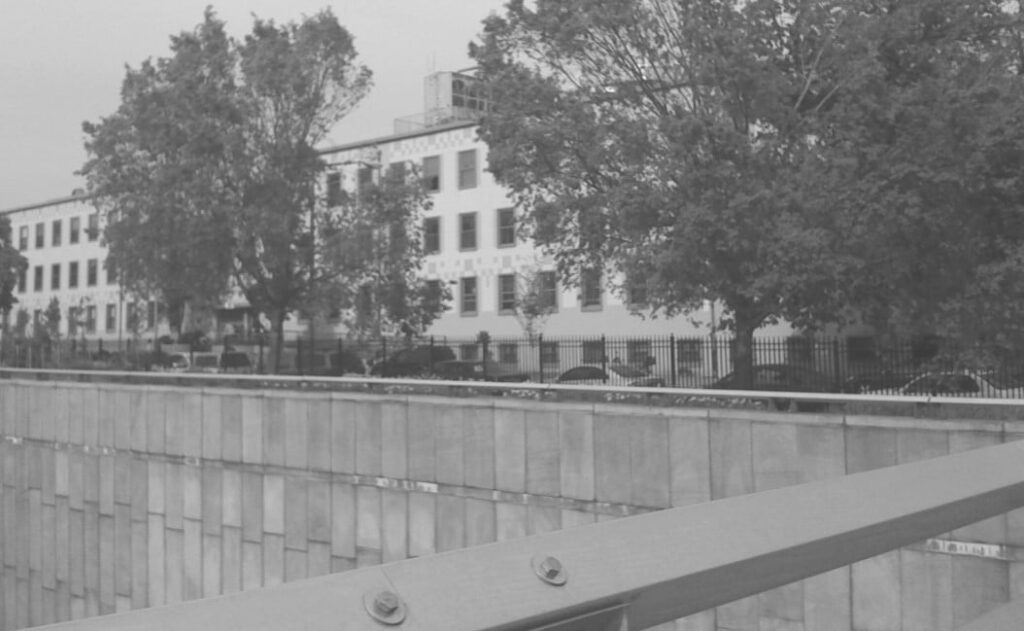John Horsey Jr., 52, complains about the conditions and restrictions imposed by one of Washington’s many homeless shelters, but he says that he stays there because it offers a bed, a shower and “decent” meals. After being unable to pay the rent for his apartment on O Street, Horsey moved to the Community for Creative Non-Violence (CCNV) long-term shelter on 425 Second Street NW where he has been a resident for eight months.
Even though residents have criticisms, every night the shelters provide a relatively safe place with food and services for hundreds of the District’s homeless.

Evette Smith, 51, a resident of Open Door, an emergency shelter located next to CCNV, said, “There are so many different attitudes you have to deal with. My mother used to tell me two women in a kitchen didn’t get along. Imagine everybody in one place.” Smith was living in Section 8 housing, a type of federal assistance provided by the U.S. Department of Housing and Urban Development for low-income individuals and families, until she was evicted from her Temple Hills apartment because she could not pay her electric bill. Smith has been a resident of Open Door since 2008.
Residents of CCNV who have been living at the shelter for a long time can become staff members. Staff members help homeless people become self-sufficient so that they can re-enter mainstream society. Horsey said that he has had to deal with the moods of not only other residents but also the staff.
“If they have been in the same position as you,” he said, “they should show understanding instead of feeling as if they’re above the clients just because they’ve made it to the upper echelon.”
Many shelter residents have mental illnesses or experience stress because they are homeless. “You have hundreds of people living in one small place,” said Neil Donovan, executive director of the National Coalition for the Homeless. “It makes all the sense in the world that somebody would be resistant to [living] in those conditions.”
The CCNV shelter has three floors. The first and third floors are for men, and the second floor is for women. 300 men live on one floor, with 28 men to a room. Brawls often break out because of concerns about relationships and respect.

Shelters such as CCNV and Open Door have rules and regulations to create a structured environment. Residents at CCNV, for example, are not allowed to loiter outside the building and cannot visit floors occupied by members of the opposite sex.
Dinner is served at 5 p.m. and lasts until the food is gone (D.C. Central Kitchen sends the shelter 675 meals every day of the year). Bed checks are carried out every night, and if a resident has been out for anywhere between 10 to 15 consecutive nights, he or she will no longer be allowed to stay at the shelter.
When Horsey arrives at CCNV late after work, the kitchen is closed. He said that this is an understandable rule, because if the kitchen and television lounge were still open, people would stay up all night, causing disruptions. Yet he still feels that it is an unjust rule for those individuals who work at night.
Horsey said, “If you have been to prison, this is the environment it projects. The only difference is, you have the freedom to come and go on certain days.”
CCNV also makes its residents leave the shelter on Mondays, Wednesdays and Fridays in order to encourage them to find work.
Jobs Have Priority (JHP) is a nonprofit organization that provides shelter residents with free access to computers, the Internet, phones, office equipment, case management, counseling, employment and housing assistance.
Individual counseling sessions are held weekly and provide information on budgeting, career opportunities and employment skills, focusing on overcoming specific challenges that the counseled individual faces. JHP provides services to more than 300 people per year in the District and Prince George’s County, placing 140 people in jobs and 70 in permanent housing per year.
“Residents have the tools to find a job and housing,” said Margaret Sobert, one of the three JHP case managers. “It’s whether they have the drive to go out or not.”
Horsey has two part-time jobs, one as a tourism vendor and the other working for the Mid-Atlantic Regional Council of Carpenters. Before he started working, he would go out and look for jobs. “It all depends on the individual,” he said. “If you have the motivation to go out, find a job and do the things you need to do to get out of this place, then the shelter is the place to be.”
CCNV also offers drug and alcohol rehabilitation and medical, mental health and dental care. Open Door offers case management, individual counseling, psychiatric assessments, referrals and transitional services.
According to the Washington Legal Clinic for the Homeless, at least 17,800 people are homeless in the District over the course of a year, which is one of the highest numbers in the country, yet there are only about 2,300 emergency shelter beds.
Donovan said a shelter’s focus should be to provide the services needed to help people become self-reliant. A shelter is “basically the final safety net when all other resources fail.”








